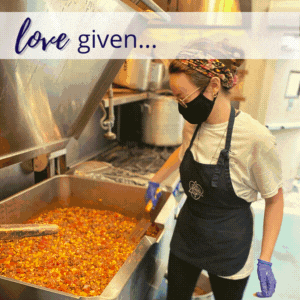By Katharine Montemurri, Program Coordinator, Colorado Vincentian Volunteers
On Valentine’s Day, a group of 18 Colorado Vincentian Volunteers, 4 staff, and a handful of community supporters gathered in our prayer room to pause before embarking on a profound journey. We shared what we hoped to carry on our journey and what we would leave behind. We sang together, that “we are on holy ground.” CVV group 24 began its pilgrimage to the Borderlands of El Paso, Texas and Juarez, Mexico. We prepared to go precisely where Vincent commissioned us to go – the margins.
After a 12-hour overnight bus ride, we reached our destination and were greeted by our local guides. We loaded into another van, and began to take in a myriad of experiences; immigration proceedings at a courthouse, a presentation from an immigration advocacy agency providing legal aid, homemade tamales and a crossing story in the home of a family who was separated for many years. We visited with Border Patrol agents and local educators who have remained in Mexico raising their children, a mother who crossed to save her daughter’s life, and a doctor providing medical care in Juarez free of cost. All the while as we drove through the cities, the tall border wall flanked us, running parallel to the Rio Grande River. The questions and insights began to form in our hearts as we heard more and more testimony.
It was a confusing trip that led to more questions than answers, but one humbling answer did ring through. What the CVV border pilgrimage did clarify was where the field beyond right and wrong was. The field is us. No matter what policy or actions occur throughout our lives they will always hurt someone and will always benefit someone, but we, as individuals, can go past that and love everyone… Even if that looks like shaking the hands of someone you disagree with on a political opinion, this world needs a little more love and acceptance of everybody. Then maybe one day we can say that we are standing in the field that Rumi was talking about: Out beyond ideas of wrong doing and right doing there is a field. I’ll meet you there. (Mathew)
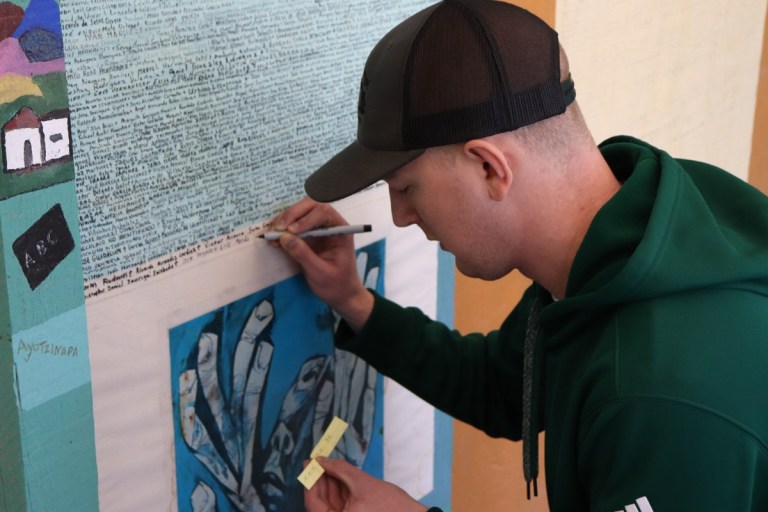
Mathew adding name of disappeared
I guess, from all the people we met with and places we went, the common occurrence was the pleading. From Rachel, working as a legal aid for immigration law at Las Americas, who told us to come back because they’re hiring. From Reuben Garcia, who wanted us to recognize the dignity of those travelling across the border and asked us to think about returning as an Annunciation House volunteer. From the Border Patrol agents, who were defending the need for their role and wanted to get across that they are good people too. And from Jorge, living alone in sanctuary, who simply wanted us to go home and share the story of what happened to him and his family in hope that someone, somewhere will hear it and know how to bring his wife and son back. (Gloria)
They had ankle monitors on. I felt like all of them turned to us with the same look, the same eyes- big and hesitant and questioning. But smiling or greeting them would produce an immediate change in their demeanor – light came into their eyes, a flash of a smile, a nod of the head. I felt it go straight to my heart each time. “God,” I thought, “please help us do right by these people.” (Hosanna)
We do not travel to the border to complete service or to help those who live there. We travel to the border to encounter God’s beloved people, listen to their stories of struggle, perseverance, and hope. We travel to share meals prepared by strong wisdom-keepers and to be reminded of the dignity of all persons – regardless of which side of which border we were born. And we are starkly reminded of the privilege we have to participate in this experience. In this pilgrimage, we are given the gift and opportunity to be vessels for stories of those who live on the border.
On Sunday evening, we re-board the bus. Having left behind our expectations and ignorance, we can now carry with us Christ, encountered in the most unlikely of places, and are tasked to build bridges of empathy and understanding within our communities. We remind ourselves and others, that these, too, are our sisters and brothers, beloved children of God.
- Border Patrol at Fence
- Sr. Janet, Francis, at Vincentian Family Dinner
- Sr. Betty with CVV Group
- CVV Group at Juarez Library
- CVV Group at Bridge

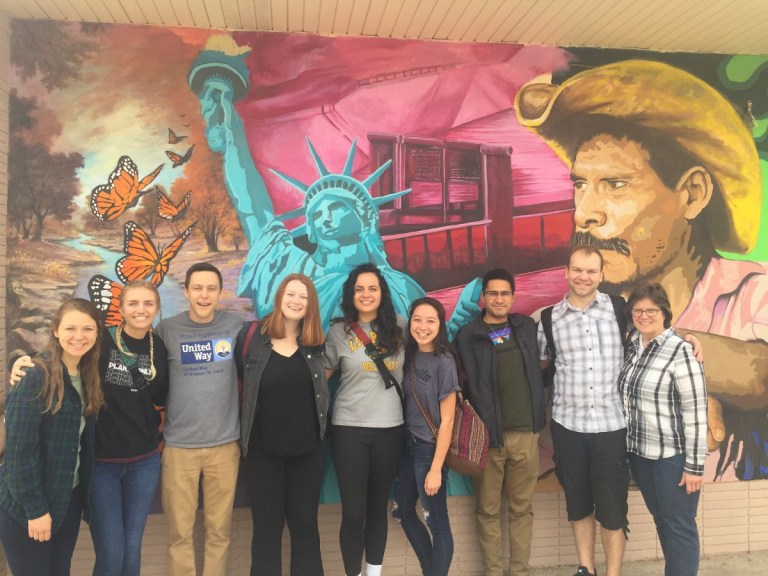
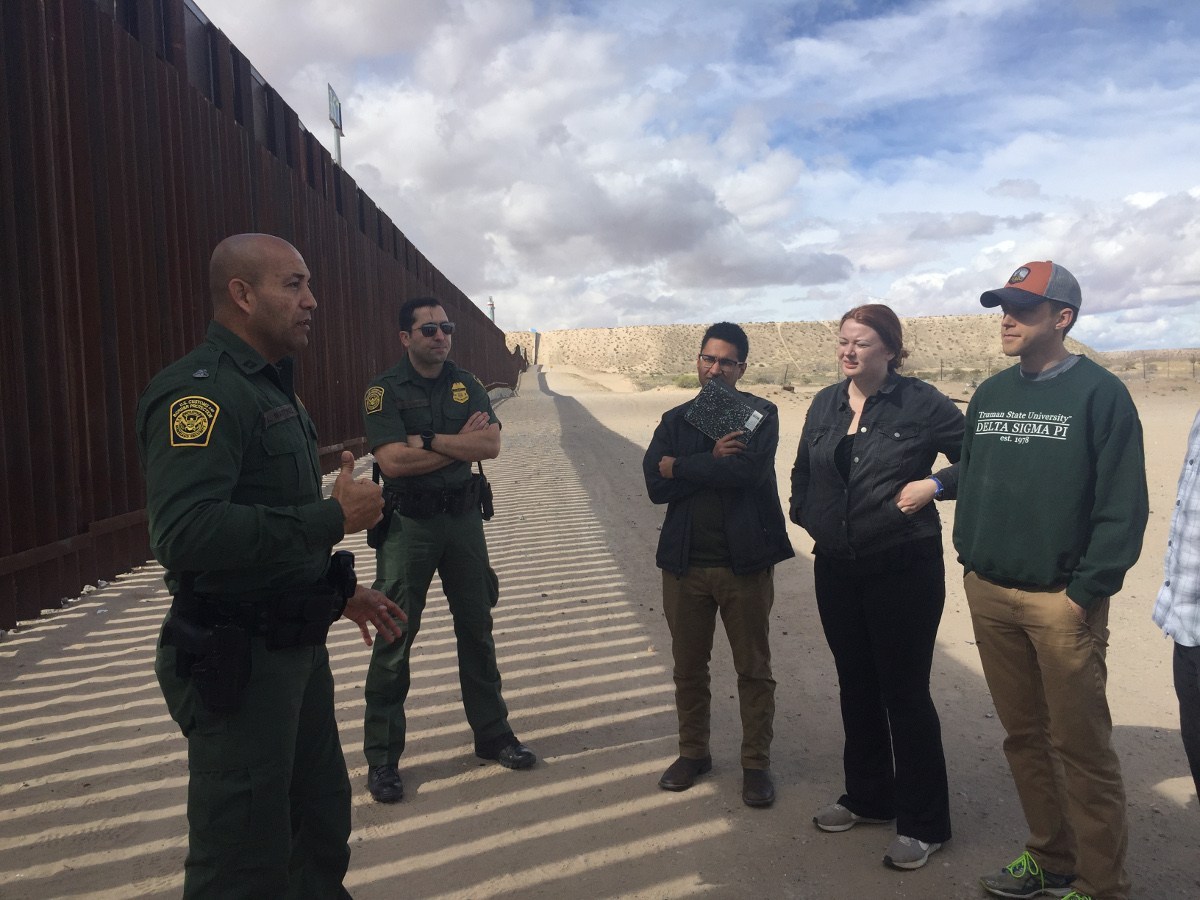
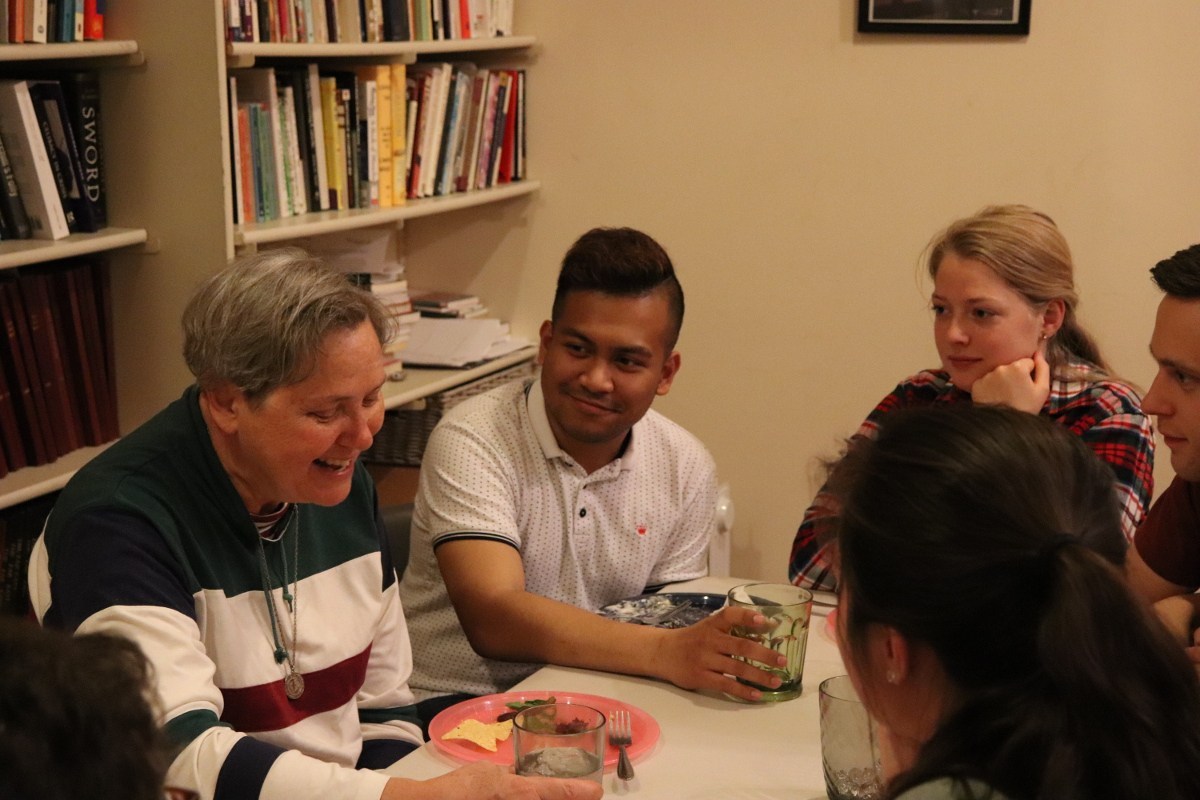
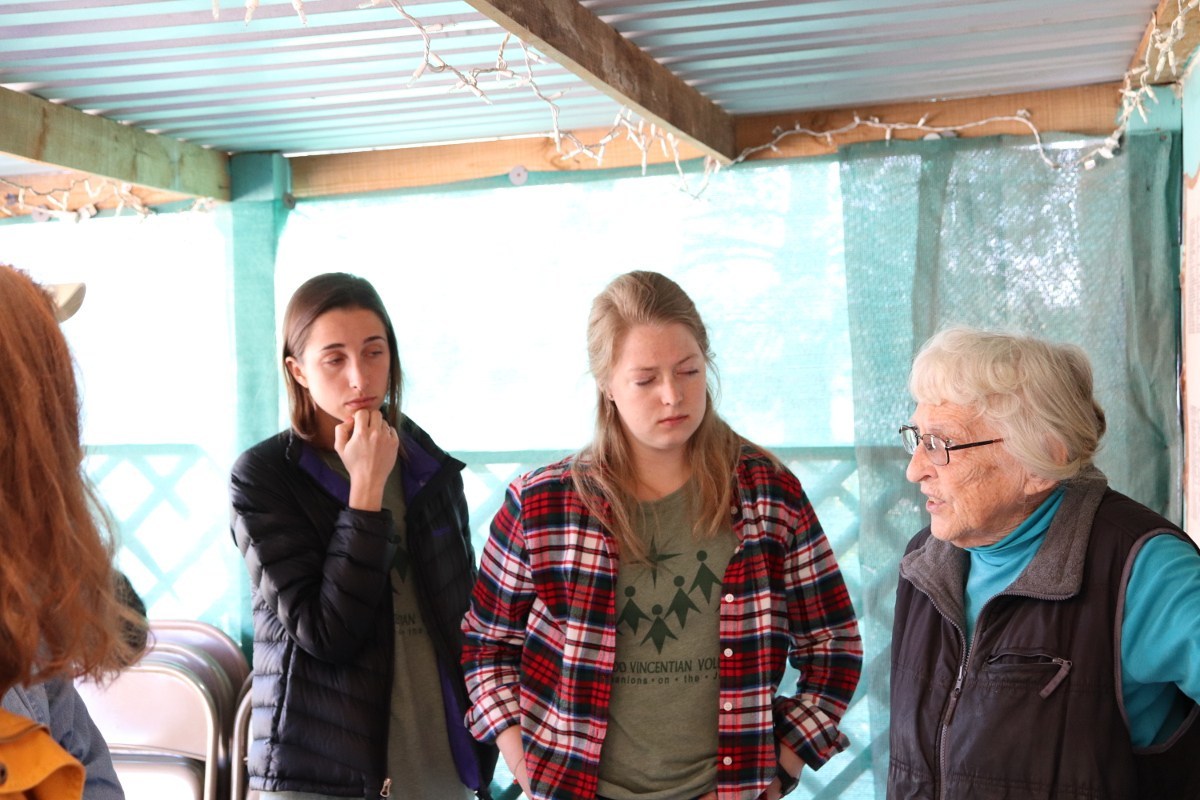
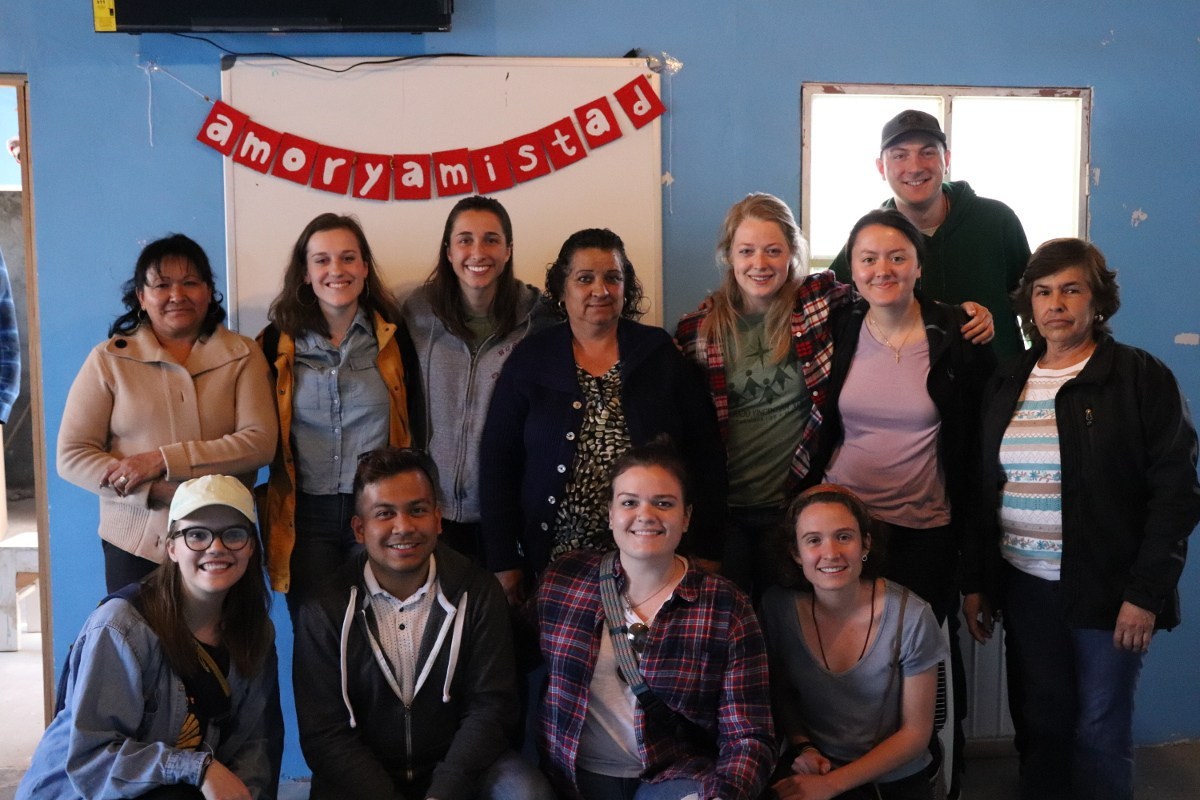
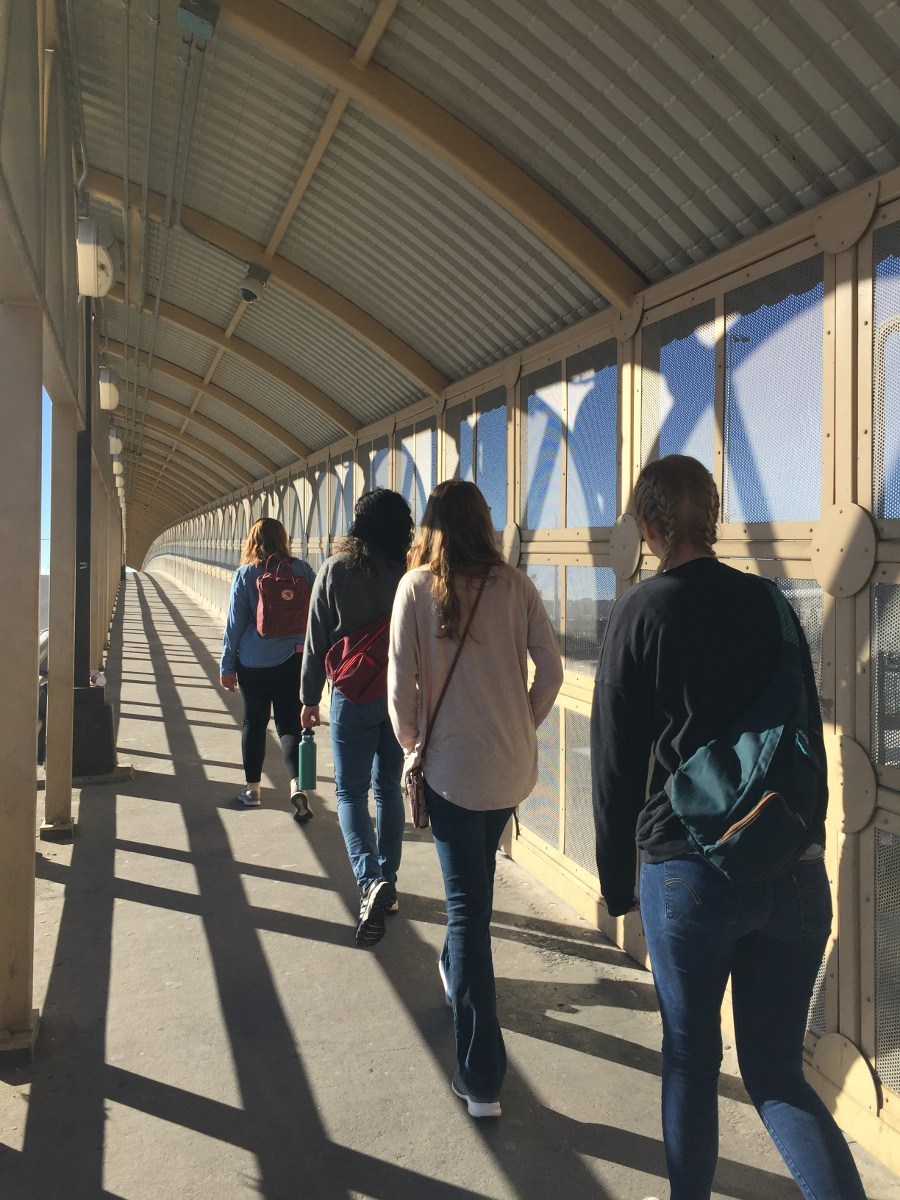
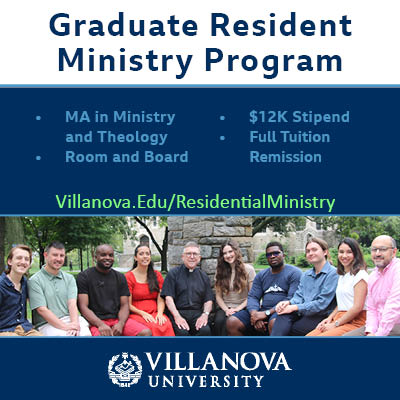
 Thousands of faith-based service opportunities can be at your fingertips with the RESPONSE. Download the latest edition today!
Thousands of faith-based service opportunities can be at your fingertips with the RESPONSE. Download the latest edition today!
